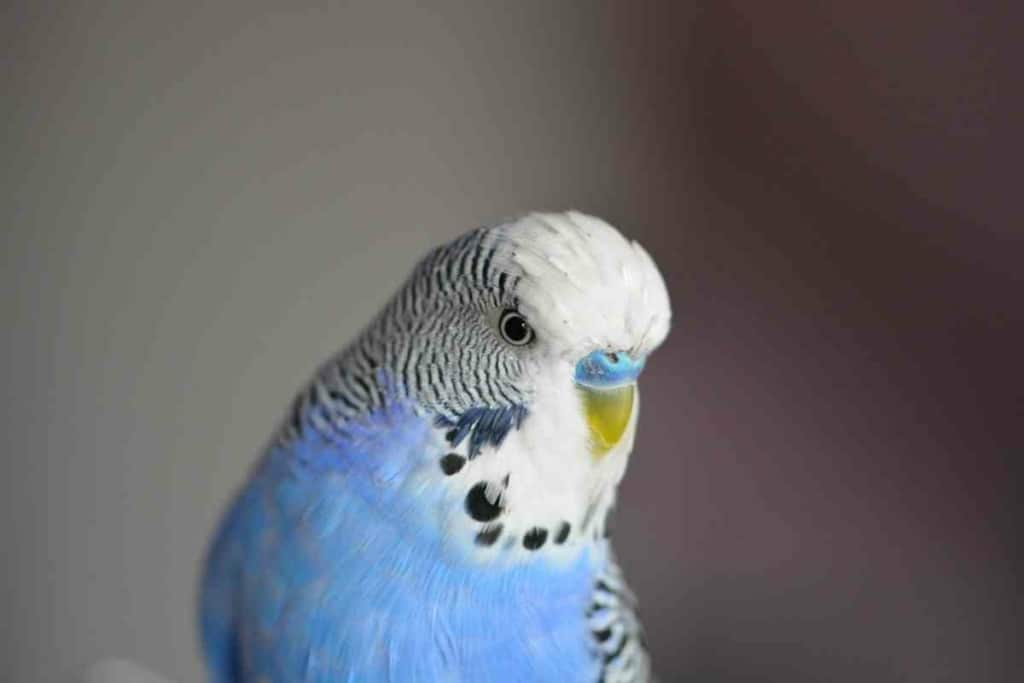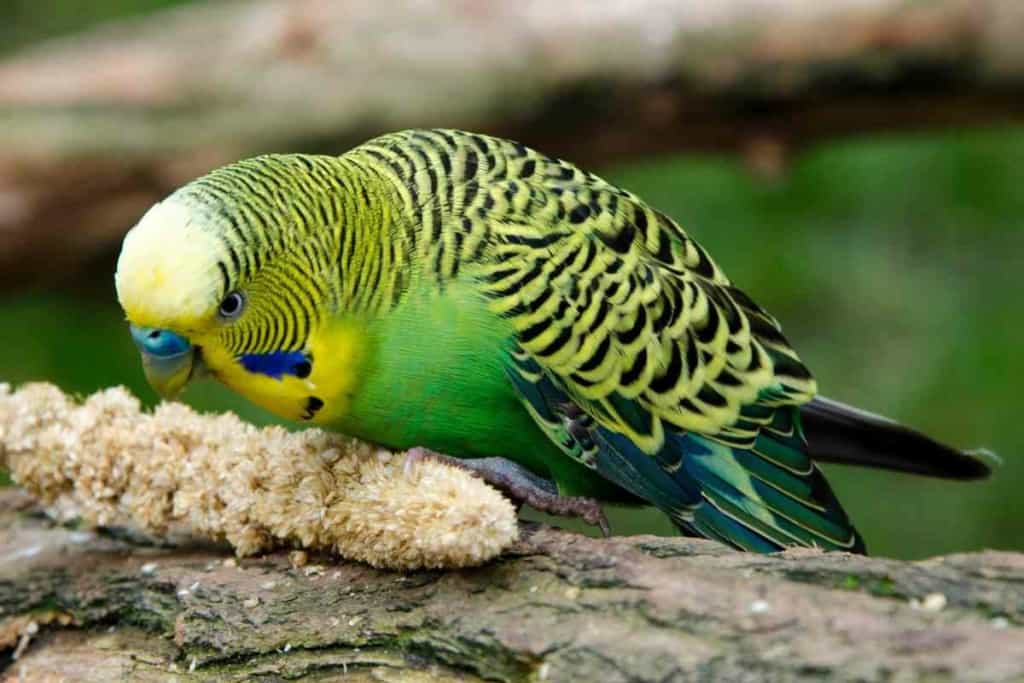Budgie Lifespan: How Long Do Budgies Live?
Budgies are a favorite pet among many people. But not many people are aware of the average lifespan of budgies.

While you are researching Budgie Lifespan, be sure to bookmark these popular pages: Blue Parakeet Lifespan: 5 Tips To Keep Them Alive Longer, How Long Do Parakeets Live on Average?, and 7 Reasons Why Your Budgie Suddenly Died.
How long do budgies live?
Budgies typically have a lifespan of around 10 years on average. But with proper care and nutrition, you can increase it to 20 years even. Many factors are taken into consideration for a budgie’s lifespan.
As a budgie lover, I have always been a fan of these birds. They are quite adorable and low-maintenance. I have reviewed many research articles and consulted with several experts on best caring for budgies.
How Long do Budgies Live as Pets?
The lifespan of a pet budgie is typically 10 years. However, some budgies have been known to live much longer – up to 20 years or more.
Budgies are relatively low-maintenance pets and make great companions for people of all ages.
Life Cycle of a Budgie

Budgies reach sexual maturity at around 6 months of age. At this point, they are ready to mate and begin the breeding process.
After a budgie has mated, the female will lay a clutch of eggs (usually 4-6). The eggs will hatch after 18 days, at which point the chicks will be born.
Chicks typically stay with their parents for around 8 weeks before they are fully independent and ready to leave the nest.
Once they have reached adulthood, budgies will usually form a bond with one specific mate and remain together for life.
Lifespans of Different Budgie Species
- Monk Parakeets – These budgies are known to have particularly long lifespans, with some living up to 30 years or more.
- Golden Parakeets – These budgies typically have a lifespan of around 20 years.
- Rose-ringed Parakeet – These budgies have an average lifespan of 15 years.
- Plain Parakeet – These budgies have an average lifespan of 10 years.

Factors That Affect a Budgie’s Lifespan
It is believed that several factors can play a role in determining how long a particular budgie will live. Some of these factors include:
The Quality of Care the Budgie Receives
Budgies that are well cared for and receive proper nutrition tend to live longer than those that do not.
Budgies that are neglected or do not have access to fresh food and water on a regular basis are more likely to succumb to disease and die at an early age.
To provide the best care for budgies, you should make sure they have a clean cage, fresh water and food available at all times, and plenty of toys, swings and perches to keep them amused. You should also take your budgie to the vet regularly for checkups and vaccinations.
The Budgie’s Diet
A healthy diet is essential for any pet, but it is especially important for budgies. A diet that is lacking in nutrients can lead to health problems and shorten a budgie’s lifespan.
To ensure your budgie is getting all the nutrients he needs, you should feed him a variety of fresh fruits, vegetables, and pellets designed specifically for budgies.
Avoid giving your budgie processed foods or table scraps, as these can be unhealthy for him.
The best diet for budgies includes:
- A variety of fresh fruits and vegetables such as apples, carrots, dark leafy greens, and berries
- Budgie pellets
- Fresh water

The Budgie’s Environment
Budgies that live in a clean, safe environment are more likely to have a long and healthy life than those that do not. It is important to protect your budgie from extreme temperatures as both heat and cold can be harmful to him.
Budgies are also susceptible to drafts, so make sure his cage is located away from any windows or doors that might let in a draft.
Budgies that are allowed to fly freely on a regular basis tend to live longer than those that are kept cooped up all the time. If you have a pet budgie, make sure he has plenty of space to fly and exercise.
Exercise and Playtime
Budgies need to exercise and play regularly to stay healthy. Exercise helps budgies stay in shape and provides them with much-needed mental stimulation.
Playtime also helps relieve boredom and can prevent behavioral problems from developing.
To give your budgie ample opportunity to exercise and play, you should provide him with a large cage that is outfitted with plenty of toys and perches.
You should also let your budgie out of his cage for several hours each day so he can stretch his wings and explore.
The Level of Stress the Budgie Experiences
Providing your budgie with proper care, a healthy diet, and a low-stress environment can help to ensure a long and happy life.
Budgies that experience a lot of stress are more likely to succumb to disease and die at an early age.
To minimize stress, you should avoid handling your budgie too much. You should also try to keep his environment as quiet and peaceful as possible. If you have other pets in the home, make sure they do not bother or harass your budgie.
Social Interaction
Budgies are social creatures and need interaction with their owners or other budgies to stay happy and healthy. A budgie that is isolated from others is more likely to experience stress and may have a shortened lifespan as a result.
To provide your budgie with the social interaction he needs, you should spend time with him every day. You can also consider getting another budgie for him to interact with.
If you have multiple budgies, make sure they each have their own cage so they can have some time alone if they need it.
How to Help Your Budgie Get Some Exercise
There are several things you can do to help your budgie get the exercise he needs to stay healthy. For example, you can ensure he has a large cage with plenty of toys and perches.
You can also let him out of his cage for several hours each day so he can explore and stretch his wings. Finally, you can provide him with access to a play gym or flying exercise wheel.
Perches are useful for several reasons. They give your budgie a place to rest and sleep, but they also give him something to climb on and exercise his feet and legs.
Toys are important for mental stimulation and preventing boredom. There are many different types of toys available for budgies, so be sure to choose ones that are safe and appropriate for your particular pet.
A play gym or flying exercise wheel can provide your budgie with an opportunity to get even more exercise. These devices can be purchased at most pet stores or online.
In all of this, you need to make sure you supervise your budgie while he is using them to avoid accidents. Exercise is important for all pets, but it is especially crucial for budgies.
How Long Can Budgies Survive Without Food?
A budgie can survive for several days without food, but it is not recommended to let them go this long without eating.
If your budgie is not eating, it is important to take him to the vet so they can determine the cause and provide proper treatment.
How to Tell the Age of a Budgie
There are a few ways to tell the age of a budgie. One way is to look at the color of his cere (the fleshy area around the nostrils).
The center of younger budgies is usually blue, while the center of older budgies is usually brown or black.
Another way to tell the age of a budgie is by looking at his claws. Younger budgies have shorter, sharper claws, while older budgies have longer, duller claws. Finally, you can try to estimate the age of your budgie based on his behavior.
Older budgies tend to be calmer and more subdued than younger ones.
How Long Do Budgies Sleep?
Budgies typically sleep for around 10 hours each day. However, they may sleep for shorter or longer periods of time depending on their age, health, and activity level.
For example, young budgies and sick budgies often sleep more than healthy adults.
Additionally, budgies that are active during the day often sleep less than those that are inactive. If you are concerned about your budgie’s sleep habits, it is best to consult with a veterinarian.
Key Takeaways
- On average, budgies live for 10 years. However, with proper care, they can even live up to 20 years.
- The quality of life and care they have can increase or decrease their lifespans.
- Budgies are social creatures with lots of energy. They need an environment where they can let off that energy.
